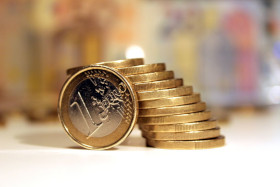The euro attempted to rally today but reversed movement against most of its rivals later, erasing gains against some of them outright. Traders remained cautious about the ongoing US-China trade conflict, while mixed macroeconomic data was not helping the currency either.
The day started with a positive data in Germany as Destatis reported that the consumer price index rose 1.0% in April from the previous month — the same as in March and in line with expectations. The growth was driven mainly by the rise of prices for package holidays. The wholesale price index rose 0.6% in April. That was a faster rate of growth than 0.3% registered in March and above the market consensus of 0.4%.
Alas, the rest of Tuesday’s data was not nearly as good. The ZEW Indicator of Economic Sentiment for Germany dropped from 3.1 in April to -2.1 in May. The main reason for the drop were concerns about escalation of the trade conflict between the United States and China. The indicator for the whole eurozone tumbled from 4.5 to -1.6. Ahead of the report, analysts were promising an improvement for both indicators, to 5.1 and 5.0 respectively.
Eurozone industrial production fell 0.3% in March from February, the same as in the preceding month and in line with expectations.
EUR/USD was up from 1.1224 to 1.1244 intraday but retreated to 1.1207 by 22:06 GMT today. EUR/JPY rose from 122.69 to 123.39 during the Tuesday’s session but pulled back to 122.85 later. EUR/CHF traded at 1.1300 after rallying from 1.1293 to 1.1329 earlier.
If you have any questions, comments, or opinions regarding the Euro, feel free to post them using the commentary form below.
Euro Fails to Rally amid US-China Trade Spat, Macroeconomic Data Doesn’t Help
